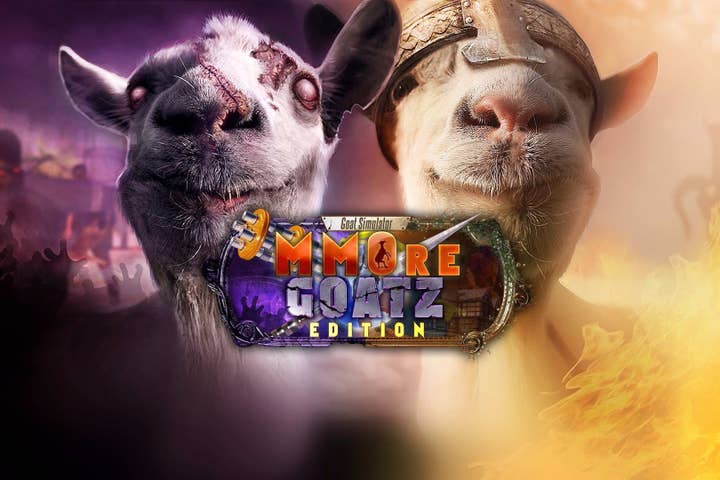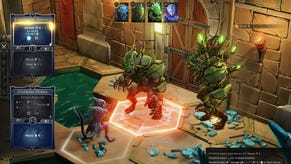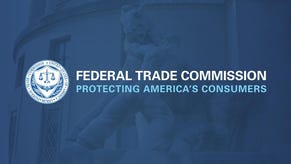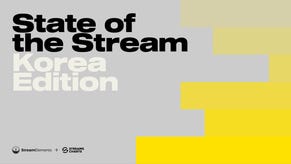Don't expect original IP to sustain your studio
Double Eleven specializes in porting games to consoles, which COO Mark South said has helped provide a solid foundation for the business
If you're aware of Double Eleven, there's a good chance it's from the Middlesbrough, UK-based studio's reputation as a port house. Double Eleven handled the Xbox One and Sony platform ports of Limbo, remade Frozen Synapse for consoles and mobiles as Frozen Synapse Prime, and brought Coffee Stain Studios' Goat Simulator to graze in console pastures.
As Double Eleven COO Mark South told GamesIndustry.biz recently, porting other people's games has just been the business model for the studio that made the most sense.
"If the business is built around original titles, you're really relying on that to happen again and again and again to be able to keep your business running," South said. "The way the industry's changing today, your tails aren't as long. There's so much content that comes out, you can't rely on two or three years of revenue from a game like you could in years past.
"There's so much content that comes out, you can't rely on two or three years of revenue from a game like you could in years past."
"It depends on the titles, but I think there's so much supply of new content coming out in digital that it doesn't take long for your title to disappear into the background. Everyone will do sales and things to drive it back to the front, but it's one of a number of factors that go into making original content just very hard to release."
South said discoverability has become a massive issue in the industry. And while it's always been the case that quality titles could fall through the cracks and never get the attention they deserve, he said it's never been more true than it is today. He likened some industry storefronts to a movie theater that only ever showed what a consensus of its customers wanted to see any given night.
"I don't like the idea of a cinema that can show any film it wants any time," South said. "I'd rather have a cinema that stuck to a schedule and I'd rather compete as a business for one of those spots. That seems more fair to me. "
That's one of the reasons Double Eleven has specialized in the console market. The higher barrier to entry for consoles and the existence of gatekeepers that still regulate the amount of content put before their customers helps position those who do make the cut to succeed, South said. However, there's no shortage of indie developers who would love to see their games appear on consoles, and Double Eleven doesn't have the resources--or the inclination--to handle them all.
"I don't think our model right now is to go and find like 20 different games we want to port over the next three years. We would rather work with a handful of good developers we could have a very close relationship with."
"I don't think our model right now is to go and find like 20 different games we want to port over the next three years," South said. "We would rather work with a handful of good developers we could have a very close relationship with... If you know what you want to do as a studio is work on IP number two while we're porting the first one, we're happy to just keep going with it and get you involved as much as you need to be. At the same time, if you want to build a franchise, the conversation will be different. Because if we like the franchise, we want to be part of it."
South said in most cases, Double Eleven actually puts some of its own money into the projects it handles.
"More than just porting titles, we work in a consulting, publishing, and developing kind of role," South said. "Because I think we've learned through our experience porting that it's never really about the one title. It's about what that studio wants to do in the future, so we try to work with them towards that same goal."
If that developer's goal is to save a dime, South said Double Eleven might not be the best option.
"We don't really compete on cost. It's not one of those things we can do," South said. "We're competing on, 'What studio can give us the best product in the end?' That's what we look more toward. Everything that we've done, it's always been because we're the right guys to do the work. If it was about porting something at the lowest cost because it's cross-platform and you just need it out, we're not the best choice for it. And I'm sure there are lots of other companies that can do that."
Bringing original properties to PC is another job for which Double Eleven might not be the best partner, South admitted. But if a developer has an existing project that they want to bring to consoles--especially if it's a technically challenging conversion to make--that's right in Double Eleven's wheelhouse.
"It's an industry where you get remembered by consumers for the last thing you did, so that's been the driving force for when we do or don't do something."
"None of our console games have Metacritic scores below 80, because we've never picked anything that we couldn't do a good job of," South said. "It's an industry where you get remembered by consumers for the last thing you did, so that's been the driving force for when we do or don't do something."
The benefit to Double Eleven's business model is that it has provided the studio with a comparatively steady source of work and capitalizes on the team's technical strengths and established connections. And thanks to the recent success of Goat Simulator, Double Eleven has enough money coming in that it can pursue some of its own original ideas without risking the company to do so.
But there are drawbacks. Chief among those is that reputation is a double-edged sword. The more clearly known a studio is for one type of project, the less likely people are to offer it work on different kinds of projects.
"[W]hen you hear about original conversions or expansions, you're like, 'Ah, bugger. We could have done that,'" South said. "And it's because we wouldn't have had studio experience in a certain genre, but the team has the resources and the capabilities to do it. I suppose that is the concern. We've been trusted with IP, but what kind of IP? I guess what people don't see is the months of design time that goes into reimagining games, simplifying systems, and making games more accessible. But it does tend to pigeonhole you a bit into what kind of games you could do."
For South, that's an acceptable price to pay if it means Double Eleven is a stable, resilient company.
"I think a safe business is one where you don't put that much reliance on the revenue you generate from [the end product], but you look at how the deal is put together and you run a business off that. It would be strange to make a game and then collect revenues from it and assume those revenues will pay for you to continue doing business. I don't see how you can run a games company like that, at least at a small scale, anyway."
And that's a message he returns to time and again. Rather than swinging for the fences and striking out, South is just happy to stay at the plate as long as possible, racking up hits, if not home runs.
"You do have to be able to cope with a title not selling well and have no change in your day-to-day," South said. "And that comes down to the nature of the deals you make and the type of games you make."









